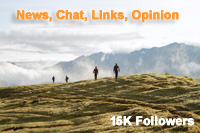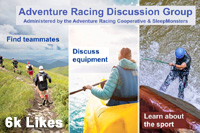ARWC 2015 Brazil - Pantanal
ARWC 2015 – Bringing Benefits to Pantanal For the Future
Rob Howard / 17.11.2015


I sat down today with Tiago, one of the principal organisers from Liga Outdoor to ask him about the logistics and economics behind ARWC Pantanal. He had quite a story to tell.
The planning for the race began over 2 years ago and has been very much a full time task for Liga Outdoor since then – as you might imagine it’s a complex business staging a race here.
The logistics of bringing teams to a true wilderness, one without any kind of infrastructure beyond the water highway of the River Paraguay, is complex enough, but there were economic and political challenges too.
“Coming here we had no benchmark to work from,” Tiago told me. “No one else has had a similar experience that we could reference – it really is a first.
“It is only possible because we have the waterways and the use of the Kalypso for the race support, press and visitors to the race. For sure we couldn’t do it without the help of the army and navy either.”
The race has about 80 staff (not counting the military), and this includes members of the environmental military police force and a firefighting unit from the federal conservation ministry. (It is the end of the dry season and there is the potential for wild fires at present.)
One navy ship is still on standby to pick up any teams pulling out, and in the later stages of the race the support will switch to roads, so there is a fleet of vehicles, including 5 army trucks. There is an 11 strong medical support team too.
At present, into the 3rd day of the race, one of the many managerial issues is juggling the available fuel to accommodate all the movements required. The Kalypso has at least a dozen tenders and there are numerous other fast boats moving around the waterways.
“We have to limit some movements,” Tiago said, “and today decided to use a plane for some filming and to move staff to AT6. It was quicker and used less fuel than the boats.”
Despite all this it wasn’t the logistical feasibility of the race that was his toughest task – he was more concerned about the economics, which were not helped by the recent economic crisis in Brazil.
“We have tried to create a race which is self-financing, without major sponsors,” he said, “by developing the commercial opportunities of the filming and content rights, and by launching ‘Pantanal Experience’ as a tourism product. I think we are the first World Championship ever to achieve this model.
Alongside the race there a group of around 30 guests on the Kalypso taking the Pantanal Experience trip and this will continue after the race as a commercial enterprise to help develop eco-tourism here.
“You have to work for 2 or 3 years to put on such a race,” he said, “and then the event itself lasts for only a week. For us it was important to bring more benefits to the region, in a sustainable way.
“The press and media work was also important to bring visibility and promotion to Pantanal and the local people and politicians valued this. We had to work with them and have lots of meetings to explain what we planned to do … and at first they just thought we were crazy!
“To be honest they still don’t understand why the teams come to do this. The firefighters have said to me they will go out into the bush because it is their job, but not in their free time – then they go to the bar and watch football!
“In such hot climates it’s natural to do just enough to survive or be comfortable, so it’s hard for them to understand the challenge of the race. However, the agencies, politicians and local people did more easily embrace the idea of the event helping to raise the profile of Pantanal and as a means to help develop its potential, particularly for wildlife tourism.
“Teams have already seen so much wildlife – more so than any other world championship race and we are working on film projects for BBC and at this race with production companies from Brazil and Hong Kong.
“This has helped to create a common cause and good partnerships with everyone involved so we could stage the race.”
With the teams so spread out across the course the logistical challenges for the next few days will be intense, and at the same time the organisers will be juggling the press and film crew movements while looking after their Pantanal Experience guests.
And after the teams have finished their race and flown home with their stories of the remote and beautiful place they’ve visited the local race partners will continue the projects to promote and conserve this remarkable place, projects which ARWC 2015 has helped to establish.







 SleepMonsters
SleepMonsters



